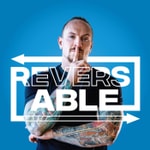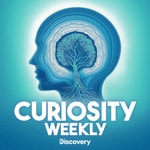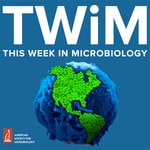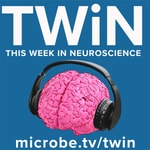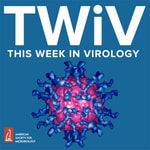Brain Explained – Détails, épisodes et analyse
Détails du podcast
Informations techniques et générales issues du flux RSS du podcast.
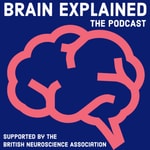
Brain Explained
Abdullah Iqbal
Fréquence : 1 épisode/54j. Total Éps: 23

Classements récents
Dernières positions dans les classements Apple Podcasts et Spotify.
Apple Podcasts
🇬🇧 Grande Bretagne - lifeSciences
08/01/2025#83🇬🇧 Grande Bretagne - lifeSciences
07/01/2025#78🇬🇧 Grande Bretagne - lifeSciences
06/01/2025#66🇬🇧 Grande Bretagne - lifeSciences
05/01/2025#52🇬🇧 Grande Bretagne - lifeSciences
04/01/2025#33🇬🇧 Grande Bretagne - lifeSciences
07/10/2024#90🇬🇧 Grande Bretagne - lifeSciences
06/10/2024#67🇬🇧 Grande Bretagne - lifeSciences
05/10/2024#52🇬🇧 Grande Bretagne - lifeSciences
04/10/2024#31🇨🇦 Canada - lifeSciences
02/09/2024#96
Spotify
Aucun classement récent disponible
Liens partagés entre épisodes et podcasts
Liens présents dans les descriptions d'épisodes et autres podcasts les utilisant également.
See all- https://twitter.com/Br_Explained
5 partages
- https://twitter.com/SamuelStupp
2 partages
- https://twitter.com/sqinstitute
2 partages
Qualité et score du flux RSS
Évaluation technique de la qualité et de la structure du flux RSS.
See allScore global : 54%
Historique des publications
Répartition mensuelle des publications d'épisodes au fil des années.
Different Types of Dopamine Neurons with Professor Rajesh and Daniel
lundi 18 mars 2024 • Durée 53:04
Listen to learn about how dopamine neurons aren’t all the same, some neurons use dopamine to reduce negative behaviours, to increase or nothing at all. I’ll be talking to to Professor Danielle who loves everything to do with navigation and Rajeshwar who is more of a dopamine specialist.
Links
Daniel.A.Domeck – lab website
Rajesh Awatramani – lab website
Daniel A Dombeck twitter
Brain fm - Music to improve focus, mood and sleep
Use the code – brainexplained to get 20%
Support the podcast using Brain Fm or through Patreon or Buy Me a Coffee
Would love to hear from you, you can message through twitter, email or website .
I would love to hear about your research and I am always looking for people to come o the podcast and editors.
--- Support this podcast: https://podcasters.spotify.com/pod/show/brain-explained/support
Looking for Dementia in the Blood with Dr Keenan Walker
vendredi 20 octobre 2023 • Durée 01:06:22
This was a brilliant episode as I have long been looking into the research into a diagnostic test for Alzheimer’s Disease and dementia in general. I for a long time for a paper on diagnostic markers for Alzheimer’s Disease and demetnai in general because it is one of the roadblocks to help us understand and eventually cure these diseases. We still cannot diagnose Alzheimer’s Disease and most dementia’s until 15-20 years into the disease. And this paper is a big step forward looking at over 5000 proteins in the blood. So listen in to find out more.
NIA investigator page
https://irp.nih.gov/pi/keenan-walker
LinkedIn:
www.linkedin.com/in/keenan-walker-1268a6197
Paper:
https://www.ncbi.nlm.nih.gov/pubmed/37467317
How Neurons Know Where To Go With Dr Titas Sengupta
Épisode 13
mercredi 23 mars 2022 • Durée 52:28
Episode Description
This episode is with Dr Titas is looking at retrograde zippering which is another way that neurons are able to correctly grow towards their correct final destination. What exactly does this system involve and how does this work? Listen in to learn all about it and we also explore why the C.elegans is a good model for neuroscience research- depending on the question you are asking.
I am also looking for individuals who would be interested in contributing to the blog. It would involve posts about the recent neuroscience that has been published preferably that week. You would try to explain the science in an easy to understand manner and would also want to delve into the significance of the findings. If this is something that interests you I would delighted to hear from you – please join the Brain Explained LinkedIn Contributors Page.
Linkto paper
Dr Titas Sengupta Twitter page
Link to website
--- Support this podcast: https://podcasters.spotify.com/pod/show/brain-explained/supportTangled Blood Vessels With Dr Ethan Winkler
Épisode 12
mardi 22 février 2022 • Durée 50:07
Listen in to learn more about arteriovenous malformations (AVM) a condition that leads to tangled blood vessels in the brain and spinal cord. This increases an individual’s likelihood of stroke. This week we will be exploring research that profiled the cells the blood vessels to find what changes occurred in these cells compared to normal samples. listen in to find out about this amazing research that could have wide-ranging implications.
Dr Ethan Winkler’s University Profile
--- Support this podcast: https://podcasters.spotify.com/pod/show/brain-explained/supportDancing Molecules and Regenerative Gels with Professor Samuel Stupps
Épisode 11
mercredi 2 février 2022 • Durée 43:42
Episode 11 is all about dancing molecules and how they could be used to help improve spinal cord regeneration. Listen in to learn how proteins that move faster are more effective with Professor Samuel Stupps.
Link to paper - https://www.science.org/doi/10.1126/science.abh3602
Professor Stupp’s Lab Website - http://stupp.northwestern.edu/
Prof. Stupp's Twitter- https://twitter.com/SamuelStupp
Useful Links:
https://www.facebook.com/simpsonquerreyinstitute
https://twitter.com/sqinstitute
--- Support this podcast: https://podcasters.spotify.com/pod/show/brain-explained/supportConcussion and Smartphones with Dr Prasanna Acharya
Épisode 10
dimanche 2 janvier 2022 • Durée 40:35
Research looking into the effects of phones and concussions. An odd mix but interesting. Listen in to learn more. We’ll be talking to Dr Prasanna.
Link to dissertation work - https://digitalcommons.lsu.edu/gradschool_dissertations/5339/
--- Support this podcast: https://podcasters.spotify.com/pod/show/brain-explained/supportSpecial Episode Number 1 - Ketamine with Dr Argel
dimanche 26 décembre 2021 • Durée 49:02
Episode Description
Come and listen to the first special episode. A conversation with Dr Argel who I meet through the Society of Neuroscience. We talk about his journey into neuroscience and his work covering memory and studies into neuroinflammation and ketamine.
--- Support this podcast: https://podcasters.spotify.com/pod/show/brain-explained/supportTeam Flow with Professor Mohammad Shehata
Épisode 8
jeudi 25 novembre 2021 • Durée 32:54
Want to know how we work well in teams? Then listen in to the latest episode exploring team flow with Professor Mohammed Shehata. Flow is our ability to enter that state where everything aligns and we are able to focus entirely on the task at hand.
- The eNeuro paper (the journal article here)
News coverage including The Times Magazine London (here), Psychology Today (here and here), IFL Science (here), TVN (here), Science Alert (here), SciShow News (here), and more (here).
- Mohammad Shehata’s LinkedIn
- Mohammad Shehata’s Twitter :@Mohamma_Shehata
--- Support this podcast: https://podcasters.spotify.com/pod/show/brain-explained/supportDopamine, Active Sensing and Blood Flow with Professor David Kleinfield
Épisode 7
mardi 26 octobre 2021 • Durée 54:51
I’m back on track. Here is the next episode. In this episode we explore dopamine signalling in the brain. Why? Because dopamine is the main signalling compound in your brain for reward. So eat a bar of chocolate, get a new job, pass your exams and you get a dose of dopamine. But the research by Professor David Kleinfield is even more important because it shows that mice can control their release of dopamine, which might explain why we can do things that to others seem strange such as climbing mountains. That isn’t all, listen in to learn about his other research around the role of the vasculature in the brain and how senses work.
David Kleinfield lab website
The main paper
Two other interesting papers (which can be found on his website):
Ultra-slow oscillations in fMRI and resting-state connectivity: Neuronal and vascular contributions and technical confounds.
Brain microvasculature has a common topology with local differences in geometry that match metabolic load.
--- Support this podcast: https://podcasters.spotify.com/pod/show/brain-explained/supportNeurospirituality with Professor Michael Fergurson
Épisode 6
jeudi 16 septembre 2021 • Durée 01:04:25

